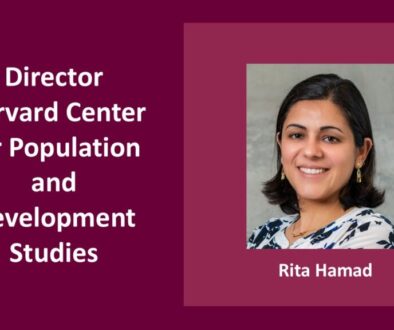Institutional Member of the Month: Augusta University Department of Population Health Sciences
Andrew SubicaThe Department of Population Health Sciences in the Medical College of Georgia at Augusta University was established in 2017 with an overall mission to investigate, preserve, and improve the health of all Georgians. At present, Georgia residents experience some of the nation’s worst public health across numerous outcomes, including obesity, air pollution, lack of health insurance, low birthweight, and premature death. As the population health arm of Georgia’s only public medical school, the department plays a critical role in addressing the health needs of Georgia’s citizens through interdisciplinary and collaborative research, education, and community engagement.
Since its establishment, the Department has experienced rapid growth, featuring over 25 faculty with expertise in biostatistics, epidemiology, genomics, health policy, and health economics. The department has successful master’s and doctoral programs in Biostatistics, and a master’s and a certificate program in Clinical and Translational Science, all with a major focus on population health. New master’s programs in Data Science and Epidemiology are slated to start in Fall 2021.
With its broad range of interdisciplinary expertise, the department has been pivotal in creating needed research and training opportunities for addressing the complex health issues, disparities, and underlying determinants of health affecting Georgia and surrounding Black Belt and other underserved communities. With a specialization in clinical and translational science and close partnerships with centers and laboratories across the medical school, the department also serves as a bridge linking patient care, biomedical research, and population health approaches to advance research and interventions targeting the areas of cancer, stroke, psychiatry, aging, and preventative health. The department also has active cross-collaborations with researchers across diverse specialties including medicine, nursing, public health, and the social sciences. During the height of the COVID-19 pandemic, our faculty were very active in performing research and analyses of the spread of COVID-19, as well as its impact on the populations of Georgia.
The Department currently has three divisions:
Biostatistics and Data Science, with research focuses on Bayesian methods, big data, bioinformatics, change point analysis, clinical trials, computational biology, epigenetics, genetic epidemiology, genomics, network graph models, statistical learning, and survival analysis.
Epidemiology, with research focuses on cancer prevention and control, health disparities, regulatory aspects of tobacco and e-cigarette use, social determinants of health, and women veteran’s health.
Health Economics and Modeling, with research focuses on cost-effectiveness analysis, health outcomes research, health policy analysis, and mathematical epidemiologic modeling.
Within the Department, there are a variety of academic and training programs and opportunities, including….
- Master of science (M.S.) and Doctor of Philosophy (Ph.D.) in Biostatistics
- M.S. in Data Science (Starting in Fall 2021)
- M.S. in Epidemiology (Starting in Fall 2021)
- Program in Clinical and Translational Science featuring a master’s and a certificate in CTS
Highlights of current collaborative research projects in the department include….
- The effect of public health policy implementation on preventing the spread of COVID-19 cases using change point models, and identifying possible turning points to better understand the comparative dynamics of the pandemic at a national scale based on WHO data.
- The health of women veterans who served in the 1990-1991 Gulf War, a collaborative project with the Boston University School of Public Health, the Boston VA Healthcare System, the Uniformed Services University of the Health Sciences, Nova University in Miami, and the U.S. Air Force.
- Healthy aging that integrates research and clinical expertise in musculoskeletal, neurological, and orofacial repair to address critical unmet needs in the treatment and management of traumatic injury and degenerative disease.
- The heterogeneity of COVID-19 with predictive modeling of outbreak hotspots and mortality.
- Machine learning and predictive modeling of COVID-19 outcomes using data from the Augusta University Health System.
- The role of epigenetic expression of IRF8 in tumor progression and metastasis, the role of IRF8 in spontaneous tumor progression in vivo and examining the role of NF-kB in Fas-mediated apoptosis and tumor suppression, and clinical evaluation of polarized light-assisted colposcopy.
- Vaccine hesitancy among African American residents.






All comments will be reviewed and posted if substantive and of general interest to IAPHS readers.